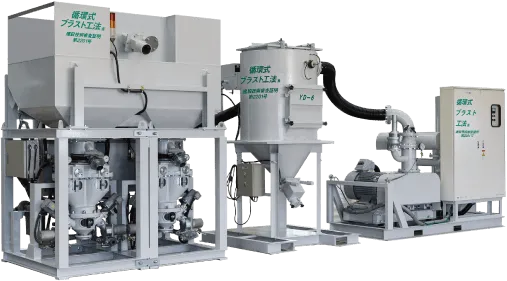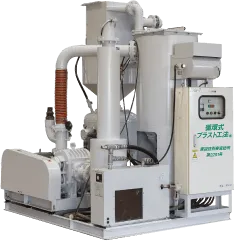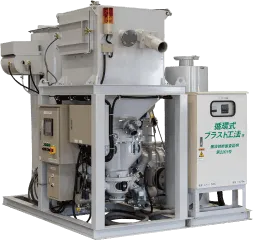
Circulating
Blast Method
Circulating Blast Method®
NETIS KT-230028-VE Utilization Promotion TechnologyAbout
What is the Circulating Blast Method®?
The Circulating Blast Method® is a blasting technique that utilizes highly wear-resistant metallic grinding materials. It involves collecting and sorting both the detached coating residues and the used grinding materials during the blasting process, and then recycling the grinding materials for further use. By recycling the grinding materials, the generation of industrial waste equivalent to the amount used is reduced, resulting in a decrease in environmental impact. Additionally, the generation of dust particles during the blasting process is minimized.
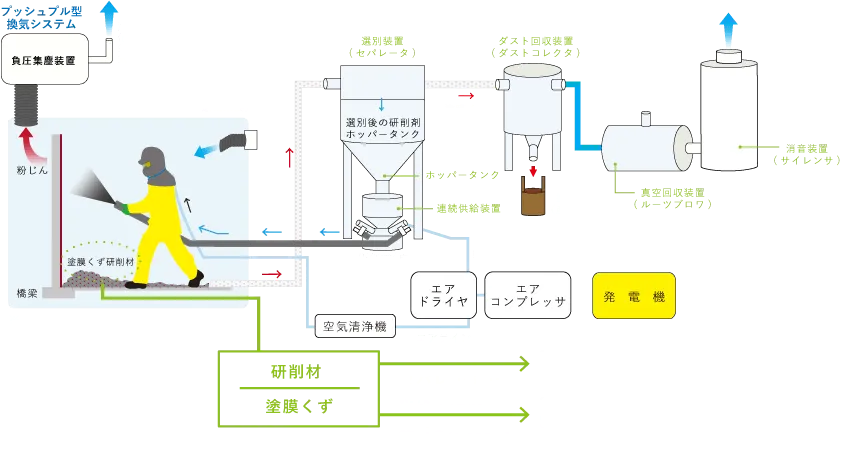
Reduction of industrial waste "Recycling and Reuse System"
The grinding material is not a single-use slag-based non-metallic system, but a metal-based steel grit that does not break.The recovered grinding material is collected by a vacuum recovery device together with the coating film waste, and the coating film waste is sorted by weight difference by a sorting device.It then returns to the hopper tank and is injected again.In this case, the air dryer prevents hardening and rust of the grinding material due to increased humidity.
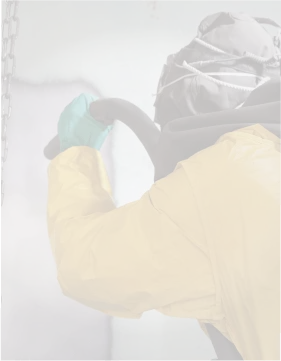
Award history
- Chubu Center for Science and Technology Chairman's Award (2013)
- National Land Technology Development Award Regional Contribution Technology Award
- Chubu Carbon Offset Grand Prize Contribution Award (2015)
- Good Company Grand Prize Special Award (2016)
- Aichi Environmental Award Excellence Award (2017)
- Environment Award Minister of the Environment Award (2018)
- Environmental Prize of Japan Society of Civil Engineering (2020)
- Japan Construction Machinery and Construction Award - Excellence Award (2020)
- Received the Prime Minister's Award for Merit in promoting Reduce, Reuse, and Recycling (2021)
- Decarbonization Challenge Cup 2023 Encouragement Award (2023)
- Construction Technology Examination Certificate Acquisition (Construction Certificate No. 2201)
- Ministry of Land, Infrastructure, Transport and Tourism NETIS registered KT-230028-VE Utilization Promotion Technology
- ISO14067 Carbon Footprint Verified Technology
Features
(01)
Do not make grinding materials into industrial waste
By changing the grinding material for peeling the paint film from the sand to a metal that can be recycled and reused, we succeeded in turning industrial waste into only the paint film waste that has been peeled off..
The reduction amount is 1/40 of that of the conventional method.
In the last fiscal year, we contributed to the reduction of about 65,000 tons of industrial waste.
(02)
Reduction of dust generation
Unlike conventional methods, the circulating blasting method uses metal-based grinding materials that are highly abrasion-resistant, so dust caused by damage to the grinding material is minimized.
It protects not only the global environment but also the health of our workers.
Good quality is achieved through a good working environment.
(03)
Low cost, improved work efficiency
In the construction of 1,000 square meters, approximately 1t of paint film waste and 40t of grinding material waste were discharged.The recycling and reuse system, which uses the difference in the weight of the coating film waste and the grinding material to separate the waste, has made it possible to make only the coating film waste.
(04)
Greenhouse gases significantly cut
Since industrial waste becomes only paint film waste, greenhouse gases emitted during transportation and disposal are also reduced.
Last year, we succeeded in reducing greenhouse gas emissions by approximately 13,800 tons and 5.6 units at the Tokyo Dome.
Protect
Completely
shut out harmful dust
External leakage
Trust
Metropolitan
Expressway Co., Ltd.
Standard construction
method in
Shiga Prefecture
Described in
Construction
Guidelines
Education
Formulating
guidelines
Comprehensive safety education
Establishment
of a skill
training system
Performance
Pioneer
abrasive circulation type blasting
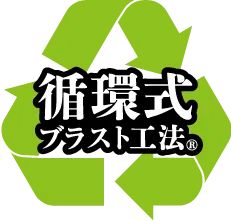
Pioneer of grinding material recycling type blast
Our company is a pioneer in the circulating blasting method ®.
However, with the spread of this method, the current situation is that there are several similar methods that claim to have similar effects, with large variations in quality and amount of waste generated.
Now that once acquiring the construction technology examination certification has resulted in a "yardstick" created in the circulating blasting method ®, please be very careful of similar methods.
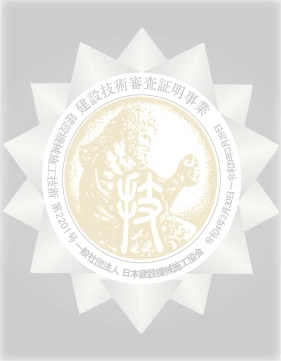
Do you use hard (brittle) grinding materials?
Grinding materials with high hardness have a low life value, wear quickly, and are prone to sticking to steel, which leads to an increase in industrial waste and a decrease in coating quality.
Is the sorting device integrated with the blast tank?
If the sorting device and the blast tank are not integrated, there is a risk that harmful dust will scatter around the construction site.
Do you use a blast-only curing sheet?
It is possible to prevent the leakage of harmful dust by curing and construction with a sheet dedicated to blasting.
Do you manage the PCB contents separately from other equipment?
If work is performed without a clear distinction between dedicated PCB materials and lead materials other than PCBs, there is a risk of contamination of sites that do not contain PCB.
Is it equipped with a suction force that can efficiently recover metal-based abrasives?
If the suction force is insufficient, the grinding agent cannot be recovered efficiently and the efficiency of the blasting operation falls, leading to delays in construction periods and increases in construction costs.



